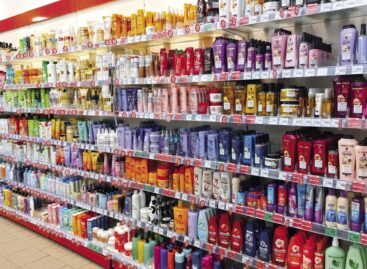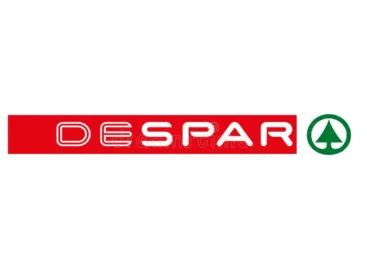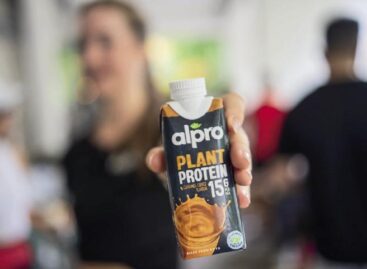Expanding yogurt brands
The yogurt market also reflected last year’s food trends: there was a drop in volume sales, accompanied by a double-digit rise in value sales because of the inflation.
This article is available for reading in Trade magazin 2024/4
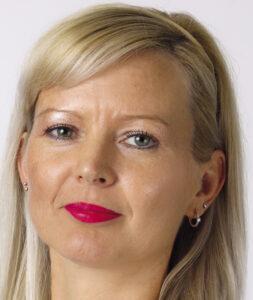
Enikő Bolyós
head of sales
Danone Hungary
“The volume decline was the most pronounced in the spoonable fruit yogurt segment, while natural yogurts managed to maintain their position best. Our natural yogurts and yogurt drinks produced above average growth”,
analyses Enikő Bolyós, Danone’s head of sales in Hungary.
Discounters represent the strongest retail channel in this category too.
Brands with functional benefits
A Danone survey last year revealed: domestic consumers often make their yogurt choices based on taste, but healthiness and price can compete with this.
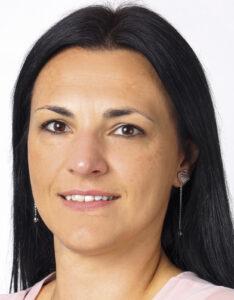
Izabella Szántó
product development
manager
Danone
“Danone Kft. it is trying to support a healthy lifestyle, from the first thousand days of life to old age. In order to achieve this, we are also offering brands with functional benefits, in addition to products that have a high enjoyment value. Examples include Actimel fortified with vitamins, or certain Activia flavours with wholegrain cereals, the high-protein YoPro range, or brands with no added sugar variants”,
says Izabella Szántó, product development manager at Danone.
Satisfying all kinds of needs
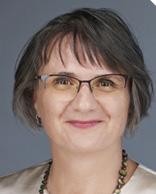
Éva de Gereczné
Rudnai
head of procurement and marketing
Real Nature
“The inflation rate is going down, but unfortunately the real income of consumers hasn’t shown a positive picture last year, and this affects the consumption of almost all FMCG products. Real Nature hasn’t reduced the size of products, as our priority remains the distribution of valuable health-promoting products in Hungary”,
explains Éva de Gereczné Rudnai, head of procurement and marketing at Real Nature Kft.
Real Nature Greek yogurts – developed for Hungarian consumers – are very popular. Their one kilogram natural, lactose-free, light and cane sugar versions have been supplemented with smaller, 4x125g natural and strawberry variants. As regards lactose-sensitive consumers, the company has also improved its milk-based yogurts, offering yogurt drinks in 300g size, in forest fruit, strawberry and mango peach flavours. Since the number of dairy-free diet consumers continues to grow, Real Nature has rolled out the creamy, delicious but simple-composition MyLove product with live yogurt culture, made from oats, coconut and almonds.
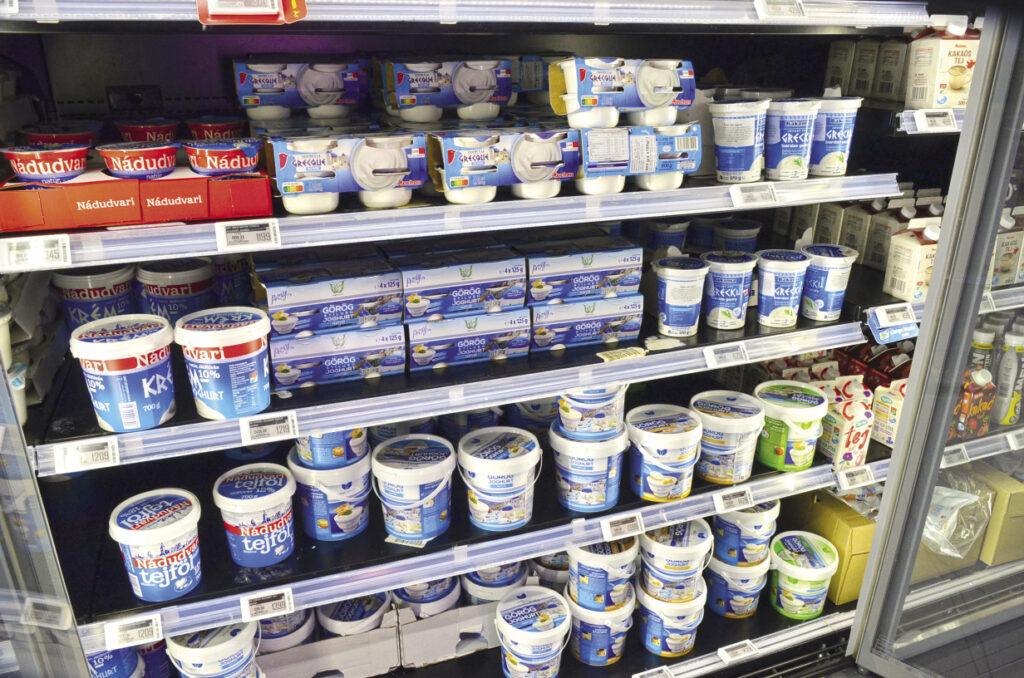
Natural yoghurts prove to be more crisis-proof
Fruitful market presence
Nádudvari has been a top player in the natural yogurt market for many years, but in the second half of 2022 they also launched their first of fruit yogurt range.

Ádám Nagy
managing director
Nádudvari Élelmiszer
“With our layered cream yogurts, we have created a new product line that offers high quality at rather a high price. Despite this fact, it became very popular in a short time, winning the Value and Quality Award within a year. Based on its success, we decided to launch two new product lines in the fruit yogurt category last autumn”,
says Adam Nagy, CEO of Nádudvari Élelmiszer Kft.
The company’s fitness products are now also available on store shelves, in low-fat and low-sugar versions, with added vitamins C and D. The fruit yogurt range put 125g products on the market, in the 2 most popular flavours, with added vitamins.
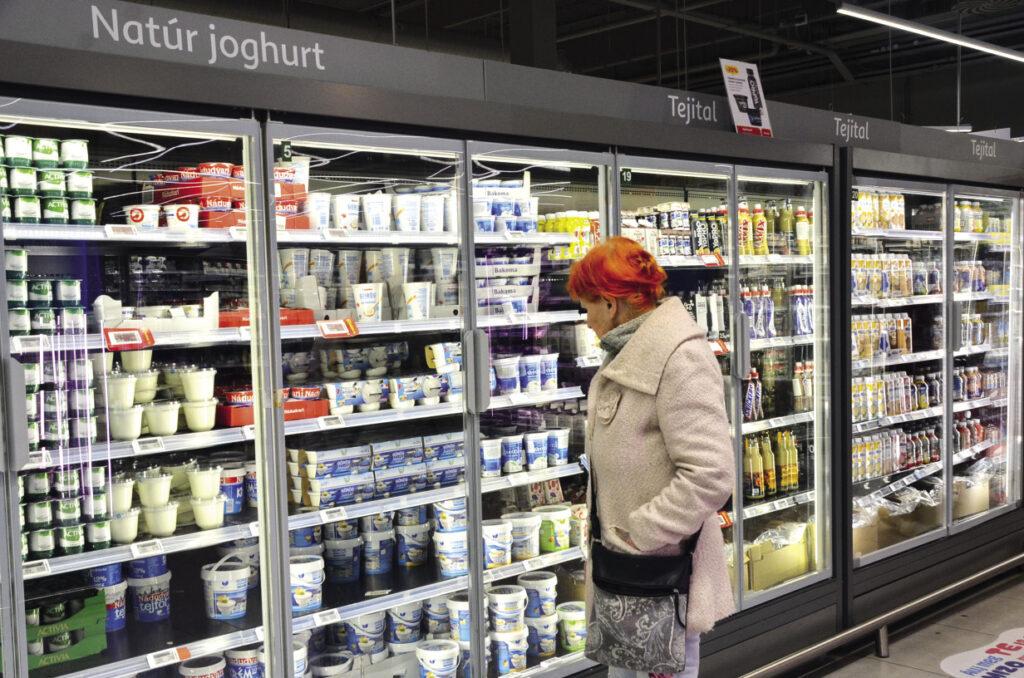
Consumers respond to price rises with promotional purchases rather than switching to private labels
Thirty years of innovation experience
Naszálytej has also entered the fruit yogurt market from the natural yogurt side, but primarily they have focused on lactose-free fruit yogurts.
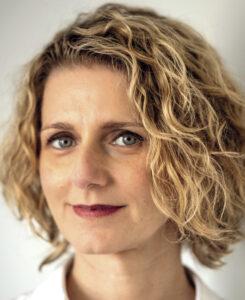
Katalin Péter
sales and marketing manager
Naszálytej
“For us lactose intolerance isn’t just a trend, as we have been dedicated to supporting lactose intolerant people with our innovation work for almost 30 years”,
emphasises Katalin Péter, sales and marketing manager of Naszálytej Zrt.
This is why the company has launched a lactose-free Greek yogurt range in this category. Their 0% fruit yogurts are made without added sugar, and Naszálytej’s higher fruit content yogurts are now also available in smaller size. All of these products are marketed under the Tarka brand. //
We choose branded yogurt drinks, but from kefirs we prefer private labels
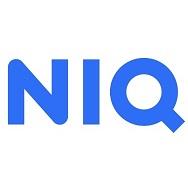

Guest writer:
Veronika Mikesy
analytic insights
associate
NIQ
Yogurt: according to NIQ’s Retail Index, Hungarian consumers spent HUF 49bn on yogurt (including cow’s milk-based natural, fruit and plant-based products) in 2023, 13% more than in 2022. At the same time the 40-million-litre volume sales in the category were down 10% vs. the previous year. Branded products account for two thirds of the category’s value share, but this represents a 4 percentage point decline compared to 2022. Private label yogurts are responsible for 42% of the category’s volume share, up 5 percentage points from last year.
Yogurt drink: yogurt drinks were purchased in the value of HUF 16bn and in the volume of 13,000 litres last year. The category’s value sales increased by 13%, volume sales fell by 9% and average price levels increased by 25%. Manufacturer brands dominate the yogurt drink segment, with private labels accounting for only 17% of the category in volume.
Kefir: kefir sales represented a value of HUF 14bn in 2023, up 13% year-on-year; however, the category’s sales of 16,000 tonnes meant a 10% decline. The segment is dominated by private labels, as last year they were responsible for 71% of total sales in litres, with their share up 7 percentage points on 2022. //
We don’t make compromises when it comes to the brands we like!
Fruit yogurts are different from most of the foods we buy in one thing: this is a category where consumers traditionally have a strong brand loyalty.
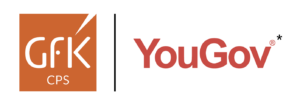

Guest writer:
Dorottya Csenge Brenner
analyst
Consumer Panel Services
It is also safe to say that shoppers aren’t going to another store for yogurt. Discount supermarkets dominate in sales and hypermarkets and supermarkets are at almost the same level, but lag well behind discounters. However, while there is certainly a place for private labels on the shelves, in terms of volumes purchased private labels haven’t shown stable growth over the past five years. Since 2020 the proportion of fruit yogurt purchased in promotion has been steadily increasing. While in 2020 37% of the volume sold was some kind of special offer or promotion, by 2023 this share increased to 45%. In addition to this, the volume sold is constantly falling. Hungarian households purchased 32,5000 tonnes of fruit yogurt in 2019, but only 22,000 tonnes were bought in 2023. //
Related news
From routine to ritual
🎧 Hallgasd a cikket: Lejátszás Szünet Folytatás Leállítás Nyelv: Auto…
Read more >Despar Italia realises EUR 1.1bn private label sales in 2025
🎧 Hallgasd a cikket: Lejátszás Szünet Folytatás Leállítás Nyelv: Auto…
Read more >High-protein products are taking over
🎧 Hallgasd a cikket: Lejátszás Szünet Folytatás Leállítás Nyelv: Auto…
Read more >Related news
II. Green Gastronomy – Marketing Communication Workshop organized by the MMSZ HoReCa and Green Section
🎧 Hallgasd a cikket: Lejátszás Szünet Folytatás Leállítás Nyelv: Auto…
Read more >


